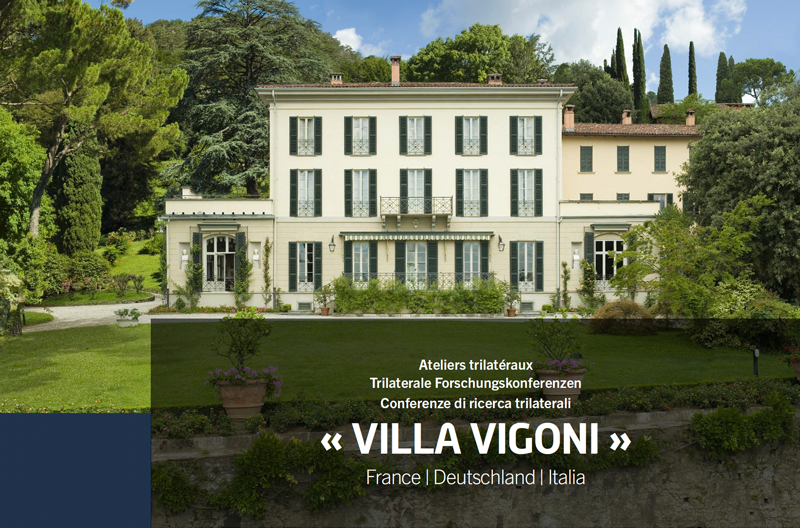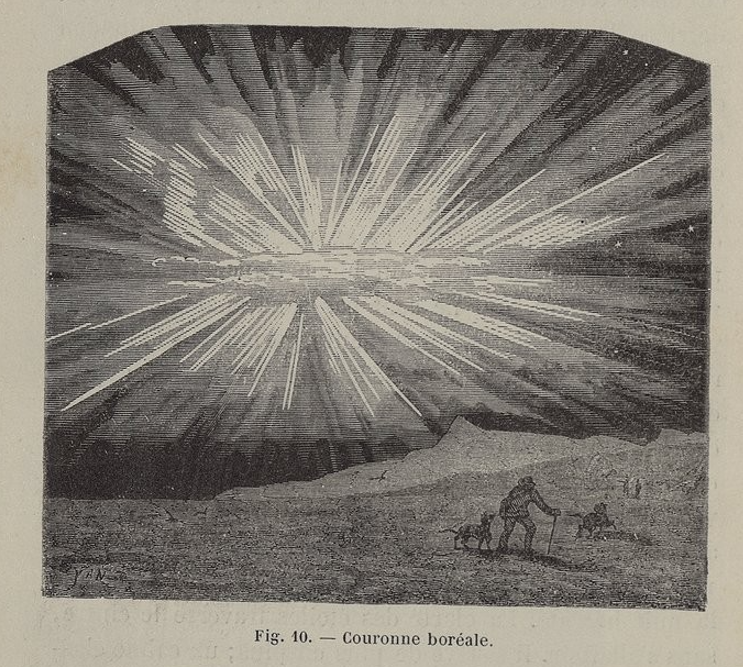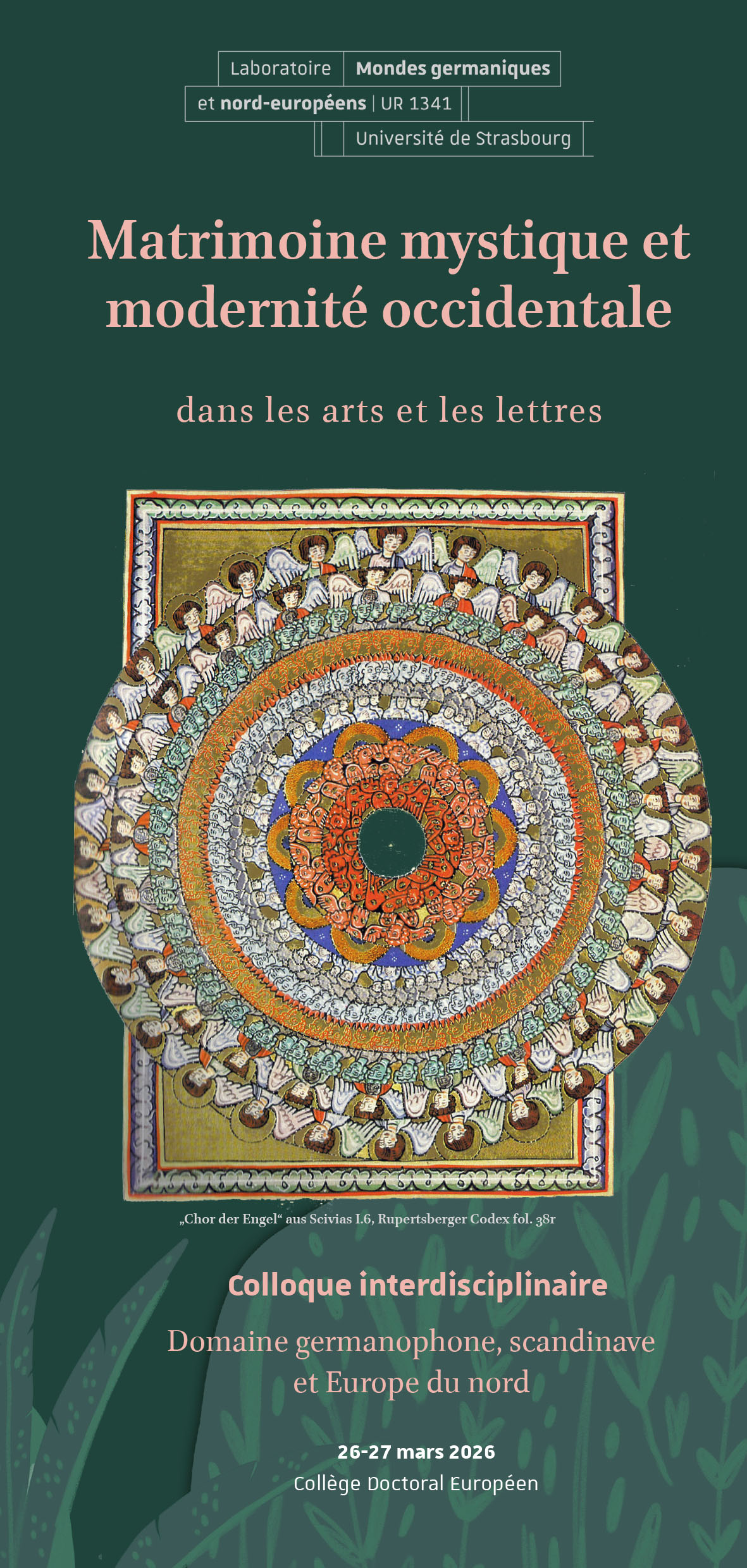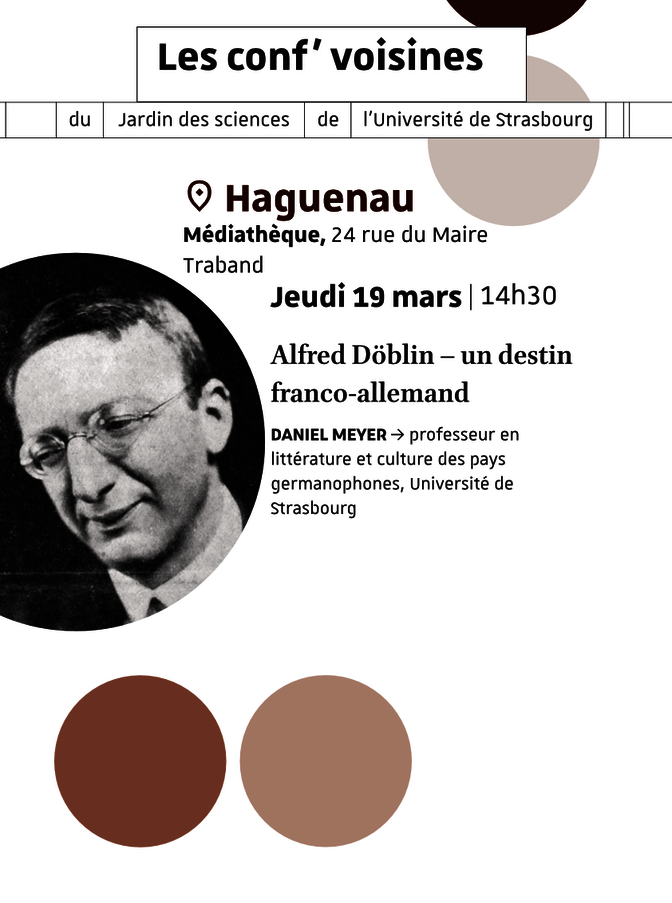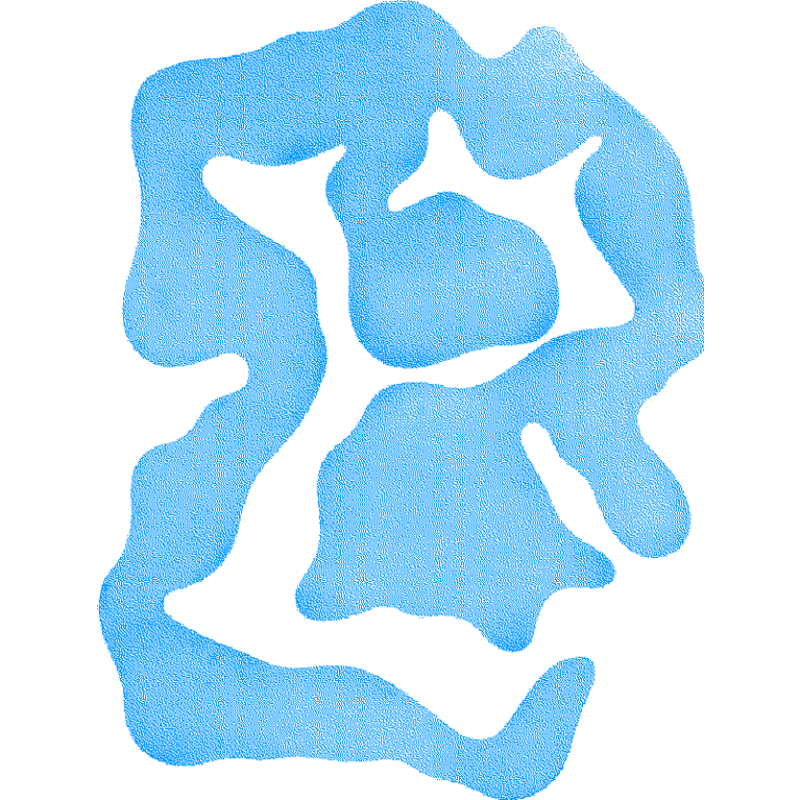Introduction
The research topics of the Studies on Nordic, and German and Dutch-Speaking Areas research unit (Mondes germaniques et nord-européens) reflect the contemporary societal debates linked to recent political, ecological and digital developments affecting the Germanic and North European areas - developments that we aim to understand through a critical study of the past and thanks to new theoretical approaches.
Research is structured around three transversal and interdisciplinary topics, presented below, which aim to bring together work relating to the Germanic and North European areas, by enabling colleagues specialising in Germanic, Dutch and Scandinavian studies, researchers in literature, the history of ideas, civilisation, cultural history, cultural and intercultural studies, to work together on common themes and varied corpuses: literature (prose, poetry and theatre), political discourse, the press, philosophical texts, iconography (painting, photography, political posters, etc.), performing arts (theatre and dance), music, cinema, video games, digital communication, etc. The diversity of these corpuses is what makes our team so rich and original.
The members of the research unit work on at least two topics. Doctoral students may choose the topic on which they wish to focus.
Interactions with other cultural areas, including those outside of Europe, are included in the three topics, with a view to developing a global history drawing on the results of previous work on the topic "Germanic societies and non-European areas" of previous contracts.
Research topics
Topic 1 - Discussing the political: media and intermediality in Germanic and northern European spaces (19th-21st centuries)
Director: Emmanuel Béhague
This topic focuses on the unifying concept of media, considered in a broad sense, referring to the various theories of media and intermediality, as well as, from a disciplinary point of view, to Anglo-Saxon media studies and the Medienwissenschaften of the German-speaking area. We examine how media function individually as vectors for representing a political, historical, social or cultural reality, but also their interaction, their reciprocal questioning and their hybridisation. By 'intermediality', we mean both phenomena of crossover between different media (text and image in literature, for example, the interplay of text and iconography in press discourse, image and body on stage, etc.) and the transfer from one medium to another (e.g. the film adaptation of a literary work). In an effort to bring research together, the term 'politics' is used here in its broadest sense. Encompassing all the phenomena that characterise urban life while also being the subject of public debate, it refers just as much to issues of remembrance, ideologies, the construction and deconstruction of collective identities, political life and social problems. Four themes have been identified:
- Images and image creation
- Identities and territories
- Vectors of memory
- Performing the political
Topic 2 - The challenge of environmental humanities: rethinking the relationships between nature and culture since the 18th century
Director: Aurélie Choné
In the context of the environmental and climate debates of recent decades, particularly on the Anthropocene era, this topic focuses on the epistemological, political and social challenges of the environmental humanities - a new paradigm that aims to rethink relations between humans and non-humans beyond the simple nature/culture divide.
Various fields of research and theoretical approaches are used to analyse the cultural, literary, scientific, technical, religious and political aspects of discourse and practices related to nature: ecocriticism, ecopoetics, ecofeminism, literary and cultural animal studies, zoopoetics, plant humanities, soil studies, literature and ethics, literature and science, visual studies, postcolonial studies, global history, posthumanism.
Current issues are addressed diachronically, through regional, national and comparative (Franco-German) approaches as well as transnational synergy, and explored in particular from the turn of the 20th century (Lebensreform in particular) and the turn of the 19th century (Romantic period). Four main themes have been selected, which have many points of convergence:
- Rhetoric, representations and practices regarding nature from the 18th century to the Anthropocene era
- Animal and plant mistreatment: what forms of resistance are possible?
- Religious and political discourse between science, art and literature
- The ambiguity of environmental preservation and the relationship to technology
Area 3 - Rethinking Germanic and North European studies through digital humanities
Director: Thomas Mohnike
The media transformation we are experiencing today should be compared with previous revolutions in knowledge such as the invention of writing 5-6,000 years ago, of printing in the 15th century, the high-speed presses of the 19th century with the invention of daily newspapers and specialist magazines, and the media for transmitting motion pictures (cinema, television, etc.). As with previous media revolutions, current changes are having an impact on scientific knowledge. Digital tools make it possible to access the sources of our knowledge in a completely new way, with methods and theoretical reflections that have yet to be developed. At the same time, it is necessary to think about how to describe the media system that preceded the digital revolution, to historicise this past, which is recent but sufficiently distinct from today's reality to be able to see the profound difference.
With this in mind, it is imperative to restructure and rethink studies in the humanities more than we have been able to do up to now. This research topic will take a three-pronged approach: on the one hand, researchers will carry out projects that use techniques that can be considered part of the digital humanities; on the other hand, the aim is to reflect on the impact of these methods on our fields of knowledge.
The work of this topic will take three approaches:
- Application: carrying out research projects using new digital approaches, including the development of new tools
- Didactics: training research unit members and others in these new tools and techniques so that they also have an impact on teaching at master's level
- Reflection: reflection on how media change impacts our disciplines and societies - and how we think about history
Major events and works
- Programme ANR-DFG 2022-2025 « Esthétique du protestantisme en Scandinavie du 19e au 21e siècle », co-porteur Thomas Mohnike
- Programme trilatéral Allemagne-France-Italie de la Villa Vigoni 2023-2025, co-porteur Aurélie Choné : « Faszination und Trauer. Kulturvergleichende Blicke auf Ästhetiken von Biodiversität, Artensterben und künstlerischer Restitution »
- Programme de Formation Recherche du Centre Interdisciplinaire d'Étude et de recherche sur l'Allemagne (CIERA) « Coprésences dramatiques, théâtrales et sociales : (Dé)constructions de l’altérité culturelle dans les arts de la scène (XIXe-XXIe siècles) » (2021-2023). Projet piloté par Emmanuel Béhague, en collaboration avec Romana Weiershausen (Universität des Saarlandes), Marc Lacheny et Marie Urban (Université de Lorraine)
- 2 revues internationales : Recherches germaniques, dirigée par Aurélie Choné, professeure en études germaniques, directrice de l’UR 1341 MGNE ; Deshima. Arts, lettres et cultures des pays du Nord, dirigé par Roberto Dagnino, maître de conférences en études néerlandaises à l'Université de Strasbourg, membre de l'UR MGNE, et Cyrille François, maître d'enseignement et de recherche à l'Université de Lausanne
- Grage, Joachim, Lena Rohrbach, et Thomas Mohnike, éd. Aesthetics of Protestantism in Northern Europe – Exploring the Field. Turnhout: Brepols, 2022
- Choné, Aurélie, Hamman, Philippe, éd., Le végétal au défi des humanités environnementales / Die Pflanzenwelt im Fokus der Environmental Humanities. Berlin : Peter Lang, Collection « Studien zu Literatur, Kultur und Umwelt / Studies in Literature, Culture, and the Environment », 2021
